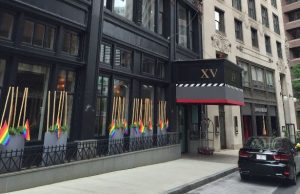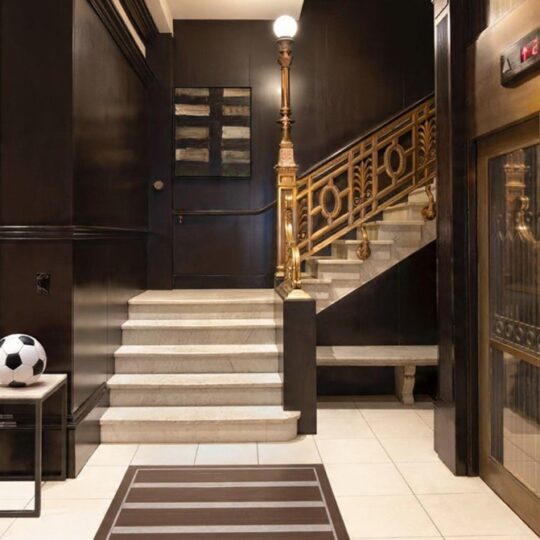XV Beacon LGBTQIA+ History Timeline

Massachusetts is known for being incredibly LGBT friendly and acts as a queer destination to many. As you walk through the city, it is clear that Boston boasts a LGBT friendly atmosphere. Boston has recognized same-sex equality long before marriage was legalized in the 2000s. The original march was a political statement and included stops at Jacques’ Cabaret, Boston Police Headquarters, the State House on Beacon Hill, and St. Paul’s Cathedral. This summer, enjoy Boston Pride and learn more about Boston’s Pride History, here.
1940s- The South End was settled by middle-class businessmen which after some time faced financial crises due to the rise of other neighborhoods such as the Back Bay offering a more trendy atmosphere. This created the need for tennents as most tennents currently residing in the neighborhood were moving out. Boston’s South End became an increasingly desirable location for single gay men and lesbians. This was due to to the amount of single-sex rooming housing available. This comminuty of LGBT artists, entrepreneurs, and creatives helped make what the South End is today.
1950s- The Beaux Arte Ball began in 1952 at the Fensgate Hotel on Beacon Street. The ball was eventually moved to the Punch Bowl as the hotel manager was not thrilled to see men in dresses and women in tuxedos. The ball continued at the Punch Bowl for several years and drew in large crowds waiting to see the drag performers enter in their costumes and jewlery.
1960s- Throughout the 60s & 70s, Jacques’ Cabaret became Boston’s only lesbian bar. After many decades of opreration, the bar came under scrutiny for its increasing misogyny and mistreatment of lesbian bargoers. This was the reason behind the Pride March in 1971 making its rounds to the venue.
1970s- The first Pride March was on June 26, 1971. The original Pride March was politically charged and addressed the numorous conflicts arrising within the budding gay community in the city. At each stop, a speaker was appointed and provided a list of demands to better the community. The march ended at the State House where the demand was “to include legislation to end discrimination against people in employment, housing, as well in public spaces due to their sexual orientation.”
Same-sex marriage was legalized November 18, 2003. The Supreme Judicial Court ruled that the state’s ban on same-sex marriage was unconstitutional. The ruling states:
“The Massachusetts Constitution affirms the dignity and equality of all individuals. It forbids the creation of second-class citizens. In reaching our conclusion, we have given full deference to the arguments made by the Commonwealth. But it has failed to identify any constitutionally adequate reason for denying civil marriage to same-sex couples.”
